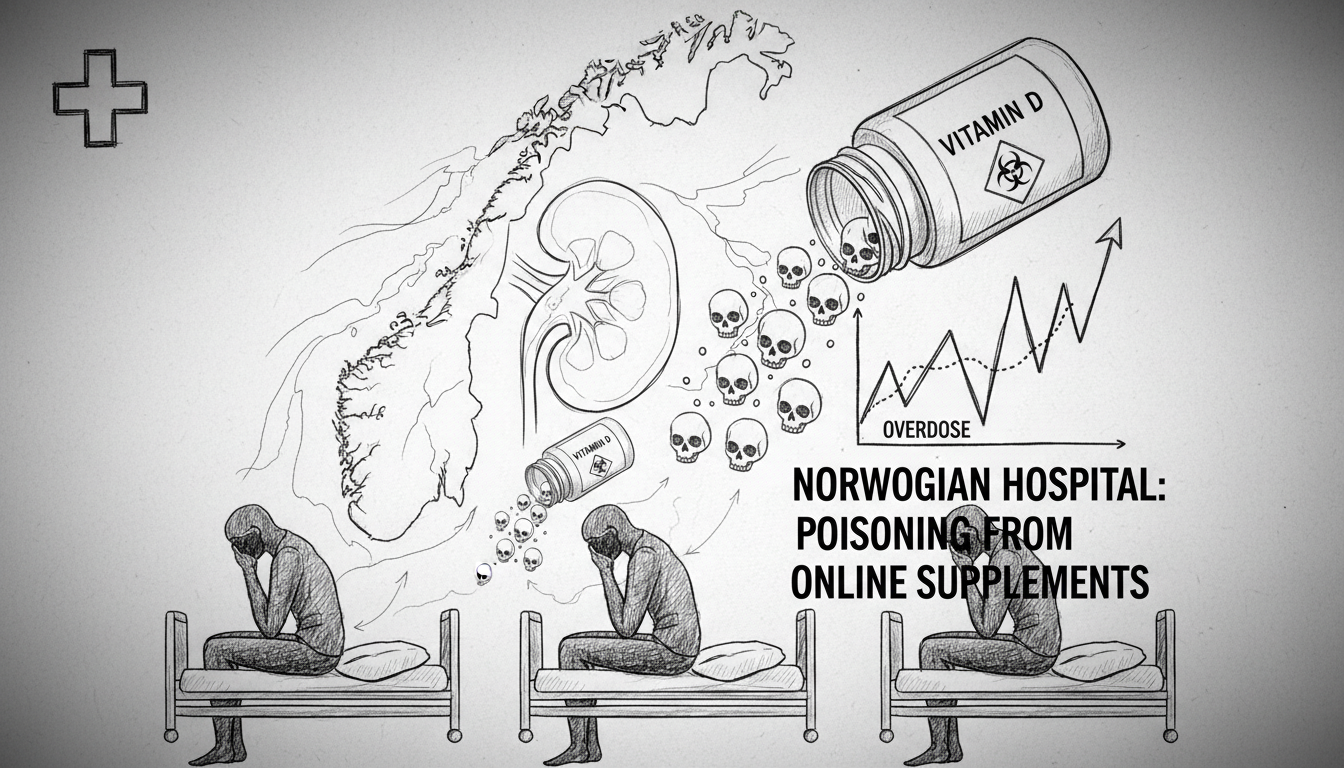A previously healthy man in his 50s was hospitalized with acute kidney failure after taking vitamin D drops. When doctors began investigating, they discovered this was not an isolated incident. Over five months, three patients were admitted to Vestfold Hospital with severe poisoning from the same vitamin D product. All three had taken the same over-the-counter, high-concentration vitamin D supplement purchased online, with daily doses far exceeding national recommendations.
Cora Wærp, a physician specializing in internal medicine at Vestfold Hospital, emphasized the risks in a social media post. She stated that even over-the-counter vitamins can be dangerous in excessive doses. Wærp co-authored a medical article published in the Journal of the Norwegian Medical Association detailing these cases.
The first patient developed severely elevated calcium levels in his blood, a condition called hypercalcemia, along with serious kidney failure. He had experienced symptoms for several weeks after using the supplement for three to six months. Doctors quickly admitted him and administered fluid therapy. After two days, his values began improving. One year later, his blood tests returned to normal, though his kidneys had suffered substantial damage.
Following publication of the case study, doctors confirmed their suspicion: the vitamin D was improperly manufactured. Wærp explained that droppers used for dosing can be difficult to control accurately. She noted that multiple cases of incorrectly produced batches have emerged in media reports recently, with some drops containing much higher vitamin D concentrations than intended.
The Norwegian Food Safety Authority recently recalled another dietary supplement containing excessive vitamin D. Wærp clarified this was not the same brand involved in the case study, noting the problematic supplement had already been withdrawn from the market.
Online shopping presents particular risks for supplement buyers, according to Wærp. She expressed concern about consumers purchasing various dietary supplements from international online stores without knowing exactly what they're getting. Norwegian pharmacies and health food stores generally offer safer alternatives where customers receive what they expect to purchase.
Some social media respondents expressed concern that such reports might scare people away from taking necessary vitamins. Wærp clarified this was not her intention. Most Norwegians actually have vitamin D deficiency and need supplements, she explained. The case study primarily serves as a reminder to healthcare colleagues to consider supplement use when examining and treating patients.
Norwegian health authorities recommend 10 micrograms of vitamin D daily for adults and 20 micrograms for people over 70. The poisoned man had consumed approximately 120 micrograms daily, but manufacturing errors likely made the dose substantially higher. Wærp noted she would never recommend exceeding official dosage guidelines without medical supervision.
Excessive vitamin D can lead to high calcium levels in the blood, and it's the calcium—not the vitamin itself—that causes damage. Wærp explained that vitamin D is fat-soluble, so excess accumulates in the body over time rather than causing immediate harm. Symptoms may include poor condition, nausea, frequent urination, and fatigue. Very high calcium levels can potentially cause brain impairment, heart rhythm disturbances, and kidney failure. In extreme cases, the condition can become life-threatening.
While Wærp doesn't believe these three cases represent a Norwegian trend, she observes a global pattern. Case studies and information worldwide show such incidents have increased over the past 10-20 years, though they remain very rare. They typically occur in batches when manufacturing errors affect specific product lots.
The doctor emphasizes that people shouldn't worry excessively about this issue. However, she advises general caution with online purchases and recommends consulting your regular doctor if taking supplements or medications above recommended doses.
This situation highlights the broader challenge of regulating online supplement sales. Unlike pharmaceutical drugs, dietary supplements often face less stringent manufacturing controls and quality verification. Consumers increasingly turn to international online retailers seeking better prices or specific formulations, but may sacrifice quality assurance in the process. Norwegian authorities maintain strict standards for products sold through domestic pharmacies, but cannot guarantee the safety of supplements purchased from foreign websites.

